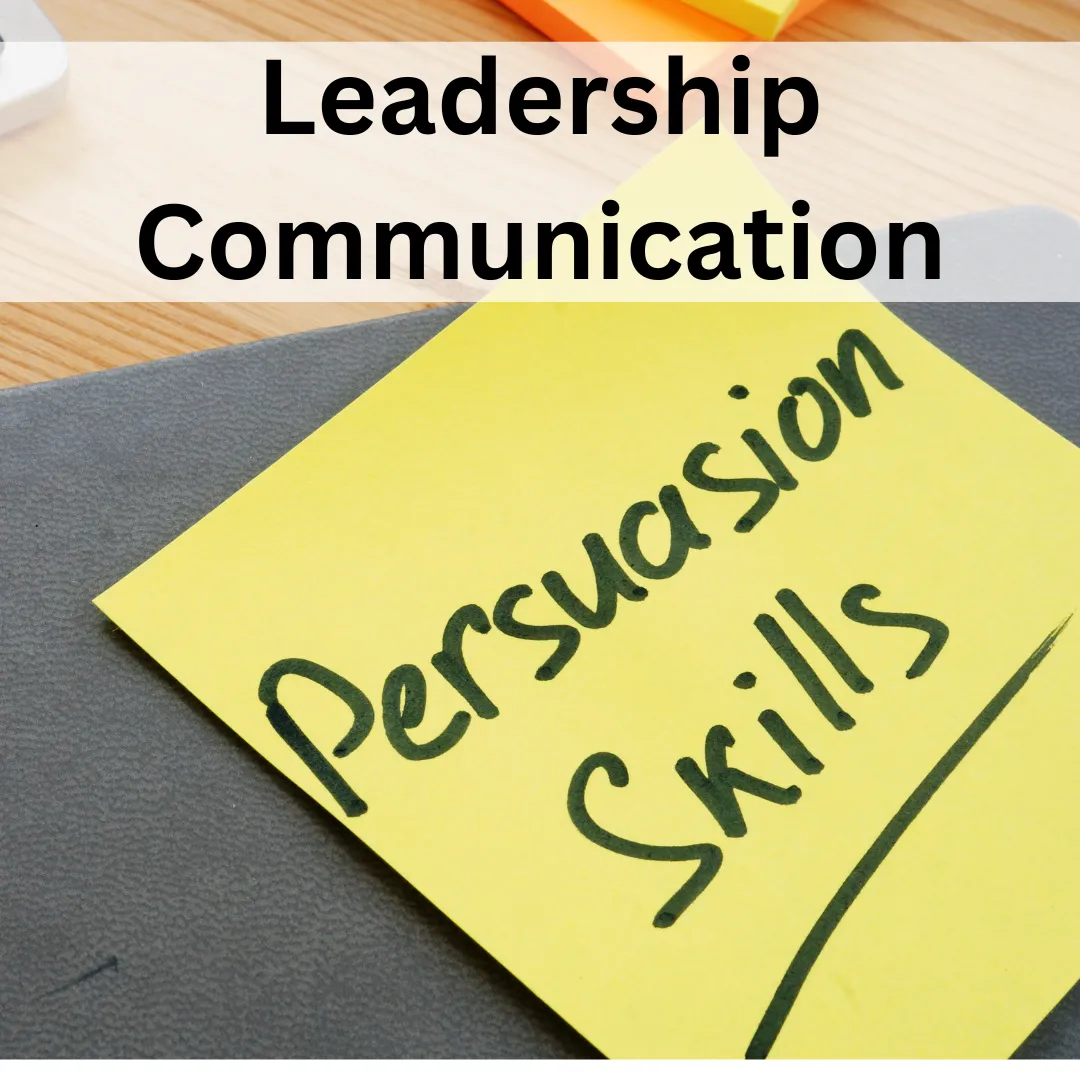
The Power of Persuasive Communication in Leadership
In today's fast-paced and distraction-filled world, persuasion isn’t just a leadership skill that’s nice to have, it’s a must-have. Whether you're negotiating a deal, convincing your team of a new strategy, or simply trying to get your kids to eat their vegetables, the ability to communicate persuasively can solve problems and create opportunities.
Persuasion often gets a bad rap because people equate it with hard sell and manipulation. It’s true that manipulation involves persuasion, but the inverse does not have to be true. Persuasion is about moving people to a new position they might not have considered, but not through begging or deception.
True persuasion requires careful planning and preparation, meticulous choice of arguments, vividly communicating the supporting evidence, and getting the emotion right. Crafting an effective persuasive message is time-consuming, but thatattention to detailmakes it powerful.
Why the Art of Persuasive Communication Is Essential
Influence and Leadership.The ability to persuade others is at the heart of effective leadership. Leaders must inspire and motivate others, rallying them around a common goal. This requires a compelling vision and the ability to communicate it convincingly.
Career Advancement.Your ability to persuade can directly impact your career trajectory. Whether you're pitching an idea, asking for a raise, or seeking a promotion, a mastery of persuasive communication is what will get you there.
Building Coalitions.Asstated above, persuasion isn't about manipulation; it's about understanding and respecting another person’s perspective in order to move them to a position you believe to be beneficial to them and the organization. By honing your persuasive skills, you can build strong alliances that help you accomplish your goals.
How to Communicate Persuasively
Understand Your Audience.The foundation of persuasion is understanding who you're communicating with. Use Active Listening to discover their needs, desires, and pain points. What are their feelings about the issue you are addressing? Tailor your message to resonate with them on a personal level; meet them emotionally where they are.
Establish Your Credibility.People are more likely to be persuaded by someone they trust and respect. Credibility comes from expertise (knowledge) and relationships. Demonstrating your expertise and experience will build credibility with your audience, as will being honest, listening, being open to the ideas of others, and doing what you say you will do.
Look for and Present the Common Ground.Describe your position in terms that illustrate the benefits for your audience. What’s in it for them? Identify and make explicit the tangible benefits of your plan or position for the people you are trying to persuade.
Use Vivid Language to Make Your Message Compelling.Your message should be clear, concise, and also lively. Using stories, analogies, and metaphors will help you connect emotionally with your audience and make your points relatable and memorable. Remember, numbers don’t make an emotional impact.
Get the Emotion Right.Humans are persuaded by emotion. When you are trying to move people, there are two important aspects to communicating emotion. First, demonstrate your own emotional commitment to the position you are advocating. Make it clear that your commitment is not just from your mind, but also your heart. Second, match your level and type of emotion to what your audience is already feeling. In this way you will calibrate your message to your audience’s ability to receive it.
Practice and Adapt.Persuasion is a complex skill and it takes patience and effort to develop it. That’s why it’s called an Art. But like any skill, practice will help you build your persuasion muscle. Learn from the feedback you receive and adapt your approach based on each experience and outcome. Eventually, you will find the formula that works for you.
Conclusion
Making the effort to master the art of persuasion can significantly enhance your personal and professional life. By understanding your audience, crafting compelling messages, and communicating with empathy and confidence, you can influence and inspire those around you. Remember, persuasion is not about winning at all costs; it's about creating win-win situations that benefit everyone involved.
Get the Persuasive communication Cheatsheet by clicking HERE.
